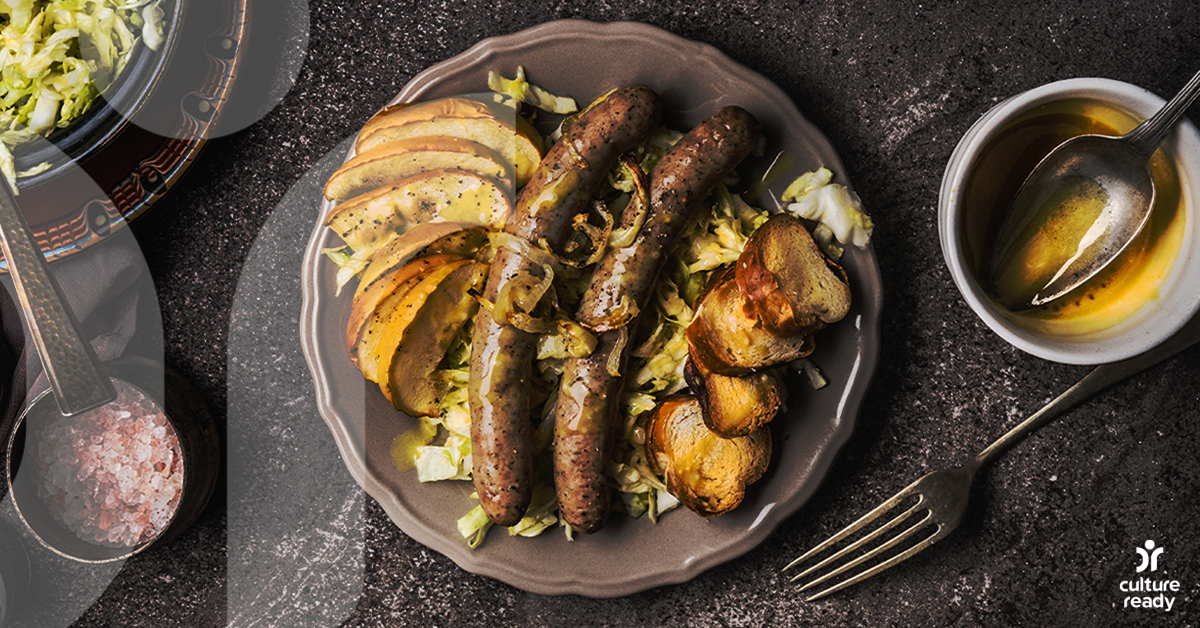In Germany It’s All About the Sausage
With more than 1,500 varieties, you could say Germany is the sausage capital of the world.
One of the most common German sausages, bratwurst, dates back to the 1300s. Made with veal, beef and pork, this type is seasoned with a combination of different spices depending on which region it comes from. The Nürnberger bratwurst, for example, is seasoned with marjoram, while the Coberger bratwurst contains salt, pepper, nutmeg, and lemon zest, and is bound with raw egg. This sausage can be served many ways, including with or in a bread roll and with mustard and sauerkraut.
Invented by Herta Heuwer in 1949, the currywurst is a German institution.
This widely popular variety is the result of the sauce Heuwer developed from the ketchup, curry powder and Worcestershire sauce given to her by British soldiers in Berlin. She poured it over grilled bratwursts and began selling them to construction workers who were rebuilding the war-torn city. At one point, her street stand was selling 10,000 currywursts a week.
Today, Germans consume some 800 million currywursts every year.
But the flavors of German sausages are far less important than the way they bring people together as one of the main menu items at biergartens all over the country.
Wurst is so ingrained in German culture that it’s even part of some of the idiomatic expressions that are a must for anyone learning the language. One of these expressions, “Alles hat ein Ende nur die Wurst hat zwei,” translates to “Everything has an end, only the sausage has two.” It’s similar in meaning to the expression “All good things must come to an end.”
The idiom became very popular after German singer Stephen Remmel turned it into a pop song in the 1980s, and it’s often sung at the end of a party or family gathering.
When someone says “Es ist mir alles Wurst” or “It’s all sausage to me,” they’re basically saying they don’t really care. “Es geht um die Wurst” or “It’s about the sausage,” on the other hand, means something is really important. Equating sausage with a sense of urgency dates back to a time when it was a highly coveted prize in folk festival games, especially for the poor.
And if a person is prone to getting all worked up about things, someone might use the phrase “Spielt die beleidigte Leberwurst” or “to play the insulted liverwurst” to express what a prima donna that person is. Its origins come from the Middle Ages, when people believed a person’s liver was the core of one’s emotions, especially anger.
Regardless of whether you eat sausage or speak sausage, this culinary delight will add lots of local flavor to your experience in Germany.
